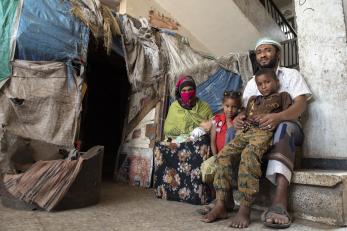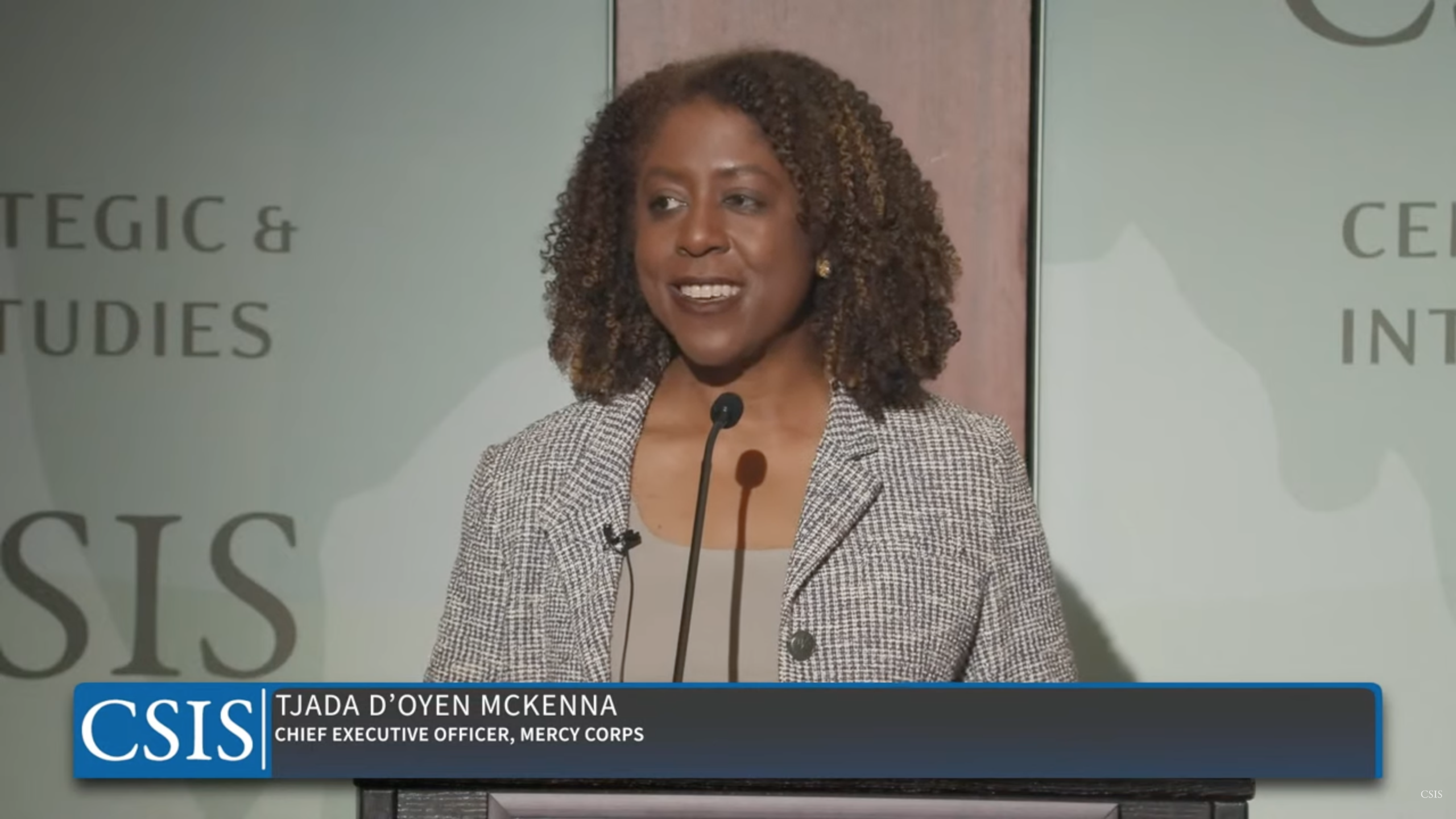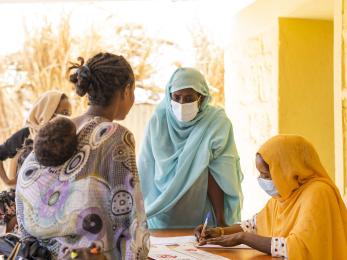G7 leaders can take “Build Back Better” from slogan to reality - but will they?
The UK has the chance to lead by example to ensure that countries such as Yemen can stave off famine.

This weekend’s G7 summit is a study in contrasts. Leaders of the world’s wealthiest nations will convene in a luxury resort in Cornwall, dining on the region’s finest delicacies - all while discussing the devastating global impact of COVID 19 and climate change, including for the world’s poorest and most vulnerable people.
Their discussions will take place under the UK’s post-pandemic slogan of “Build Back Better.” But for so many countries where Mercy Corps works, the idea of building back – whether better or at all – seems a far-off dream.
Consider Yemen’s Taiz region, where distant relatives, neighbours and friends share essential items like wheat flour, canned beans, sugar and vegetable oil – despite having little for themselves to begin with. Some 16 million Yemenis will face hunger this year amid the world’s worst humanitarian crisis.
Much of this crisis is driven by six years of brutal conflict, exacerbated by climate change-induced drought and flooding, and now worsened by COVID-19. In other words, the Yemeni crisis is a product of the exact subjects the G7 leaders are talking about this weekend in their seaside resort.
We know foreign humanitarian assistance plays a critical role in rebuilding communities and countries devastated by crisis, and Yemen’s situation is no different, though certainly more pressing than most. And there is reason to think the leaders of the UK, U.S., France and other member nations will have the necessary framework to decide to enact real, lasting change.
The G7’s recently published Famine Prevention and Humanitarian Crises Compact, which aims to prevent hunger around the globe and stresses a commitment to “diplomatic action, smarter financing and more effective responses to crises”, is welcome. It puts taking action to prevent food security crises in places like Yemen, Nigeria and South Sudan firmly on the G7 agenda.
But much more must be done to get lifesaving aid to those facing hunger today, and to anticipate future crises. Notably, the Compact does not pledge any new funding, nor commit to a timeline or even suggest national implementation plans for the G7 members.
In the balance, millions of people in countries like Yemen will remain trapped on the brink of famine until we can act and get at the critical root causes of food insecurity, particularly conflict, which has been exacerbated by climate change and COVID-19.
As host of this year’s Summit, the UK government is uniquely placed to rally G7 leaders to take necessary action. But to do so, it must commit to reversing a drastic reduction in aid spending from 0.7% to 0.5% of its national income, including a 60% cut to Yemen.
As the G7 leaders gather we hope they are moved to understand and address the plight of people in Yemen and elsewhere who must share what scarce food they have as they struggle to survive each day.
Until then, organisations like Mercy Corps will continue to support communities in Yemen and around the world as they struggle to overcome the everyday realities of conflict, the climate crisis and the global pandemic.
Alexandra Angulo is Executive Director, and Arnaud Quemin is Regional Director for the Middle East at Mercy Corps, a global team of humanitarians, working together on the front lines of today's biggest crises to create a future of possibility, where everyone can prosper.


